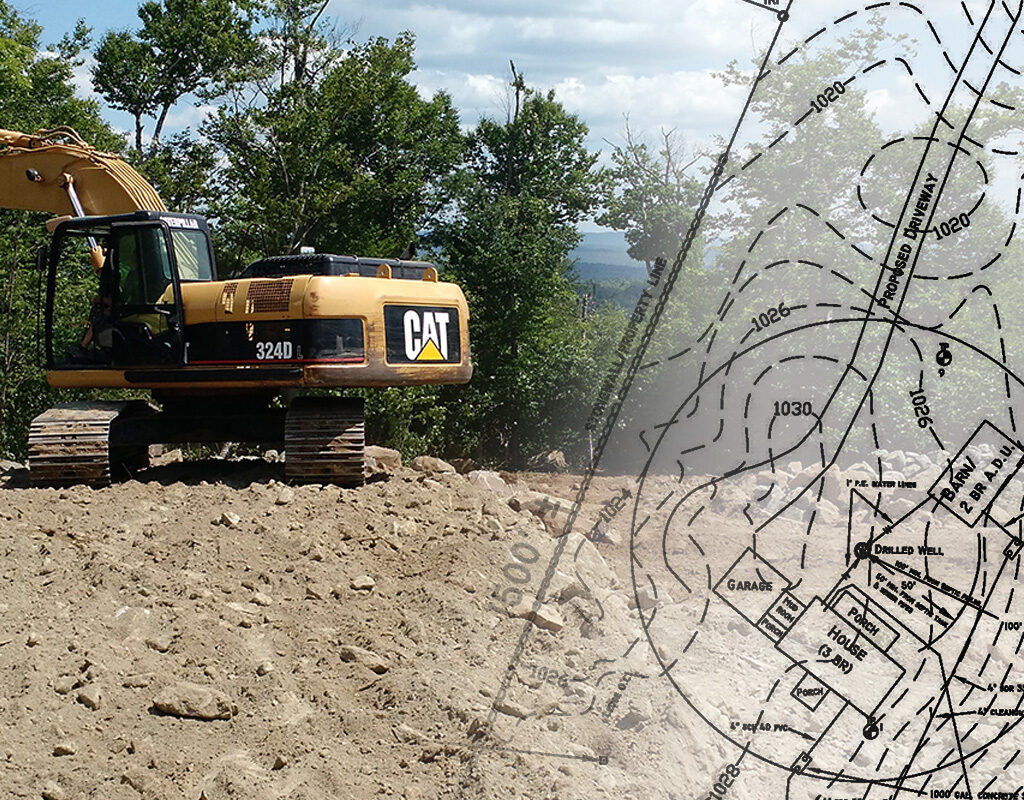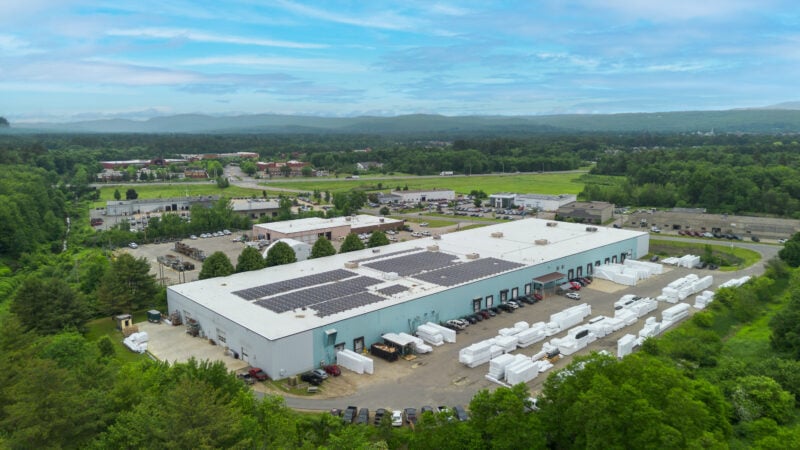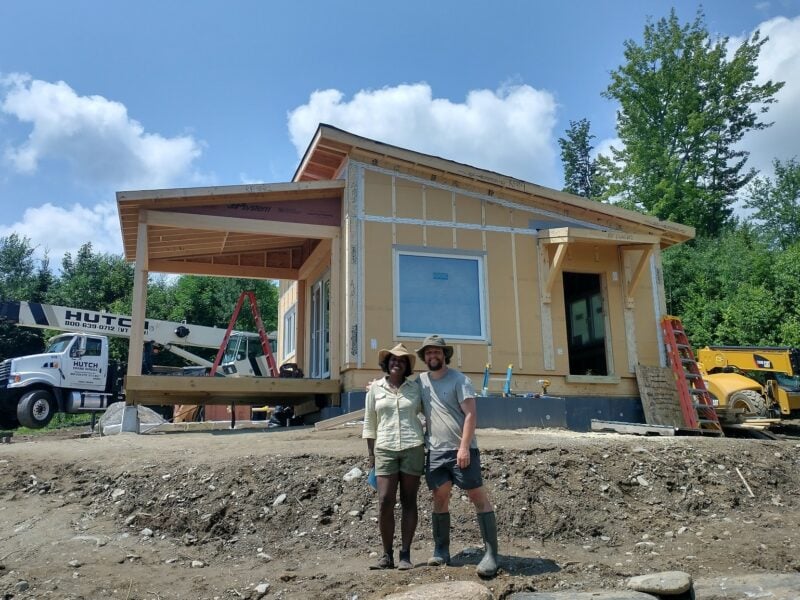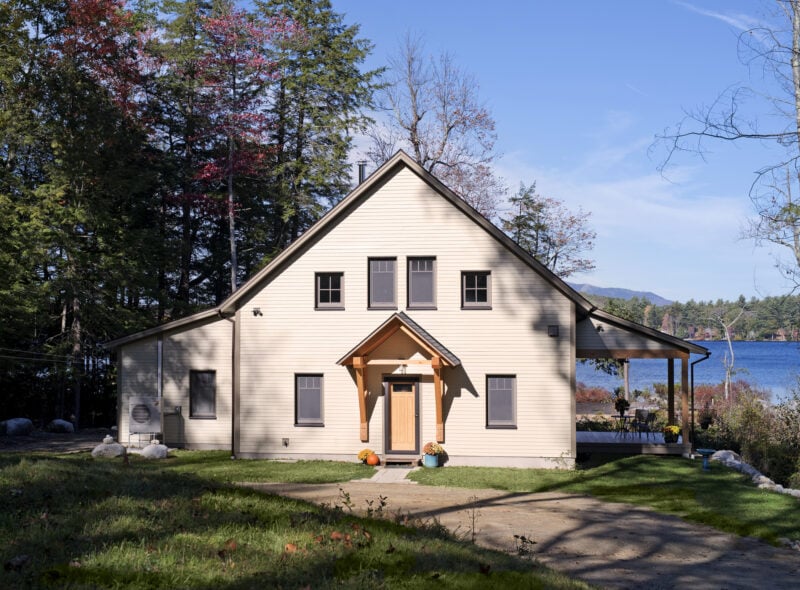One of the more common questions we’re asked by prospective clients is whether Unity can send someone to help evaluate potential building sites. Generally our answer is “no,” because we simply don’t have the bandwidth, but we do have practical suggestions for assessing land on which you’re considering building.
Given the importance of the site to the design of the home and to overall project costs, we typically recommend that you hire a local professional—a civil engineer, site planner or even a local general contractor—to assess the site conditions in person.
Here are additional suggestions for factors to consider when evaluating potential building sites:
- Review potential sites in terms of your project goals.
While this may sound daunting, it can be done at a high level, and still be a useful exercise. For example, if you’re set on Net Zero performance, then you’ll want a site with plenty of sunlight, and the possibility of orienting the home optimally to the sun. And if you’d like a slab foundation to make the best use of limited funds, then the building site should be relatively level. - Understand the likely costs for site development.
Site development costs vary widely, and may include:
- Land clearing – how extensive?
- Driveway – what type? how long?
- Utilities – underground or overhead?
- Blasting – required due to ledge?
- Drainage – issues with surface or groundwater?
- Retaining walls – required to achieve design goals?
- Excavation – for foundation
- Well – if not on municipal water
- Septic system – if not on town sewer
The cost of this work may range from $20-30,000 for a relatively flat, cleared site on municipal water and sewer, to well over $100,000 for a difficult site with a long driveway on a private well and septic system. If you have no idea about what the costs might be to develop a particular site, then we would recommend using $75,000 as a placeholder for the site work—and following up with a local GC or excavation subcontractor to obtain ballpark estimates for site work costs.
- Research regulatory and permitting constraints
Is the lot zoned for the intended use (single family detached residence)? Will the site be subject to special permitting requirements such as shoreland zoning or wetlands? Does a Homeowners Association have final approval on the design and finishes?
- Understand the implications of the site for the foundation design
Slab foundations are the most cost-effective, but they require a site that is fairly level. Full basements—either with or without a “walkout”—add considerably to the construction costs, but they also provide usable space on the ground level. On a sloping site, a walkout basement might be the only reasonable option.
- Obtain an engineered survey of the site
The seller of the land may already have an engineered survey with topo lines and key features. If so, that can be very helpful in assessing potential building sites on the land. If not, you may want to wait until after purchasing the site to invest in a site survey—keeping in mind that we won’t be able to move forward with the design process until we have the site survey.
- Talk with neighboring landowners, the local building department and anyone else who might have insights into the “buildability” of the land
If the land will require a well and septic system, information from surrounding lots may provide insight into the depth and quality of wells in the area, and the type of septic system that will be required. Walking the land with a septic designer may reveal likely locations for the leach field, which could then inform the location of the house itself. Building departments and planning/zoning boards should be able to speak to potential regulatory hurdles. And local tradespeople may be able to provide useful anecdotal information about building in that location.
Here in New England, many would consider the ideal building site to be a south to southeast-facing hillside of moderate slope, with deep and stable soils and good access to a building location partway up the slope. Given that sites like this are increasingly rare, your choice of a building site will likely involve some compromises. We’ll do what we can to support good decision-making, and point you toward additional resources when appropriate.



















